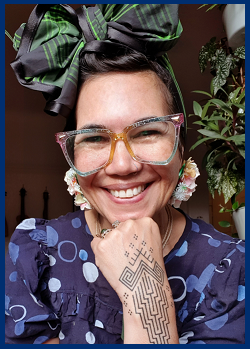Building a future library with apps
VALA2022 CONCURRENT 8
Wednesday 15 June 2022, 12:00 – 12:30
Josh Weisman
- formerly VP Development, Ex Libris
presented by
Itai Veltzman
- Ex Libris
Rachael Salby
- RMIT University
Please tag your comments, tweets, and blog posts about this session: #vala2022 #os8
Read the paper here:
Abstract
Changing conditions require changing business practices. Academic libraries are not an exception. Current trends require libraries to work more efficiently and in a more agile fashion. Library management systems can facilitate agility and efficiency by providing an open platform that enables integration and extension. A model based on apps takes an open platform to the next level, enabling libraries to develop and deploy apps that reside inside the library system, and enables users to easily activate, access, and use the apps as a part of their daily workflows.
Biography
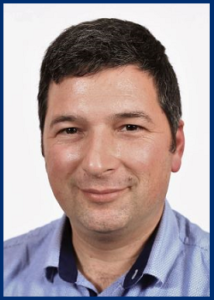 Itai Veltzman leads the cross products and innovation group in the Library Solutions business unit at Ex Libris. Itai’s main responsibilities are to promote new services and infrastructure in the areas of Linked Open Data, Openness, Analytics, User Experience, Security and Privacy. He strongly believe in true user-centric collaboration and partnership with our customers community. Itai also believes it is all about the data, how you manage it and how you present it. He is looking forward to learn and develop his expertise in libraries management systems, especially linked open data.
Itai Veltzman leads the cross products and innovation group in the Library Solutions business unit at Ex Libris. Itai’s main responsibilities are to promote new services and infrastructure in the areas of Linked Open Data, Openness, Analytics, User Experience, Security and Privacy. He strongly believe in true user-centric collaboration and partnership with our customers community. Itai also believes it is all about the data, how you manage it and how you present it. He is looking forward to learn and develop his expertise in libraries management systems, especially linked open data.
![]()
This work is licensed under a Creative Commons Attribution-NonCommercial-NoDerivs 3.0 Unported License

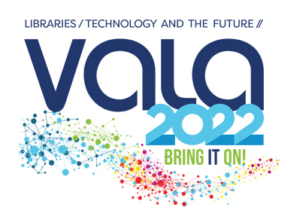
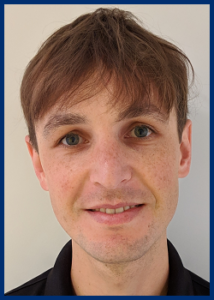 Kieran Hegarty is a librarian and sociologist. He is a currently a PhD candidate at RMIT University and works on the ARC Linkage project ‘Representing Multicultural Australia in National and State Libraries’, run in partnership with the National Library of Australia (NLA) and three state libraries (New South Wales, South Australia, and Victoria). Kieran’s PhD research considers how the web has changed how national and state libraries build collections and how they are put to use. He is particularly interested in how automation and third-party applications used in web archiving and social media collecting are changing the nature of curation and documentary heritage. Through extended periods of fieldwork at the NLA and the State Library of New South Wales, Kieran is exploring the day-to-day production of two collections: the national Australian Web Archive and the New South Wales Social Media Archive. Kieran is passionate about taking experimental, creative, and collaborative approaches to research. Following his PhD, he hopes to continue his work in libraries, creative arts institutions, and sites of research, supporting ways to understand and challenge the power structures that shape how knowledge is created, disseminated, and authorised. You can find out more about Kieran’s research at his website (assemblingtheweb.com) or on Twitter @assemblingweb.
Kieran Hegarty is a librarian and sociologist. He is a currently a PhD candidate at RMIT University and works on the ARC Linkage project ‘Representing Multicultural Australia in National and State Libraries’, run in partnership with the National Library of Australia (NLA) and three state libraries (New South Wales, South Australia, and Victoria). Kieran’s PhD research considers how the web has changed how national and state libraries build collections and how they are put to use. He is particularly interested in how automation and third-party applications used in web archiving and social media collecting are changing the nature of curation and documentary heritage. Through extended periods of fieldwork at the NLA and the State Library of New South Wales, Kieran is exploring the day-to-day production of two collections: the national Australian Web Archive and the New South Wales Social Media Archive. Kieran is passionate about taking experimental, creative, and collaborative approaches to research. Following his PhD, he hopes to continue his work in libraries, creative arts institutions, and sites of research, supporting ways to understand and challenge the power structures that shape how knowledge is created, disseminated, and authorised. You can find out more about Kieran’s research at his website (assemblingtheweb.com) or on Twitter @assemblingweb.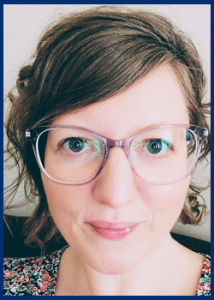 Biography
Biography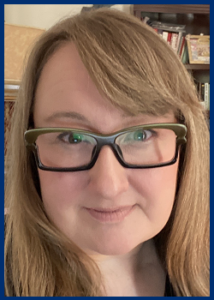 serves as the Postgraduate Coordinator for LARIS and is the Deputy Director of Graduate Research for the School of Media, Creative Arts, and Social Inquiry within the Curtin Faculty of the Humanities.
serves as the Postgraduate Coordinator for LARIS and is the Deputy Director of Graduate Research for the School of Media, Creative Arts, and Social Inquiry within the Curtin Faculty of the Humanities.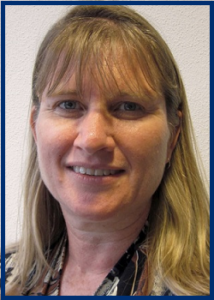
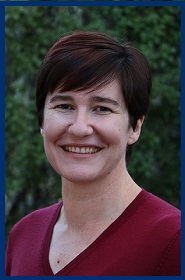 Annette Goodwin has worked as a Librarian for over 20 years in a range of library settings, including school and public libraries. In 2011, she commenced with Charles Sturt University Library, supporting Research and Teaching staff and Research students. In 2020, she joined the CAUL Digital Dexterity Champions network and the Resource Sharing Working Group. She holds a Bachelor of Arts from UNE, a Graduate Diploma in Information Management – Librarianship from UNSW and a Masters of Education – Children’s Literature from USQ.
Annette Goodwin has worked as a Librarian for over 20 years in a range of library settings, including school and public libraries. In 2011, she commenced with Charles Sturt University Library, supporting Research and Teaching staff and Research students. In 2020, she joined the CAUL Digital Dexterity Champions network and the Resource Sharing Working Group. She holds a Bachelor of Arts from UNE, a Graduate Diploma in Information Management – Librarianship from UNSW and a Masters of Education – Children’s Literature from USQ.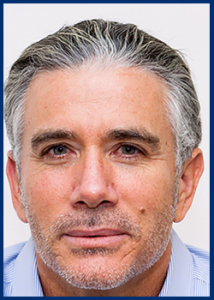 John Lenahan has been associated to supporting education over the last 25 years as an educator and in supporting access to electronic resources to libraries. He worked with ProQuest for 10 years prior to coming to JSTOR in 2011. At JSTOR he was responsible for JSTOR’s global outreach efforts until 2019 at which time he move over to managing published content on JSTOR. Recent key initiatives have been working with libraries and publishers in developing sustainable ways to increase the amount of open content published on JSTOR.
John Lenahan has been associated to supporting education over the last 25 years as an educator and in supporting access to electronic resources to libraries. He worked with ProQuest for 10 years prior to coming to JSTOR in 2011. At JSTOR he was responsible for JSTOR’s global outreach efforts until 2019 at which time he move over to managing published content on JSTOR. Recent key initiatives have been working with libraries and publishers in developing sustainable ways to increase the amount of open content published on JSTOR.
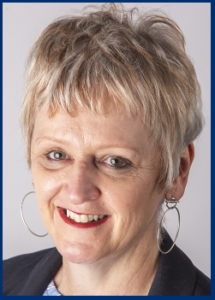 services to the Queensland public. This includes the coordinator of programs and activities to engage schools. She leads by example and gets a great deal of satisfaction from developing others. Linda loves libraries, learning, baking and eating what she bakes.
services to the Queensland public. This includes the coordinator of programs and activities to engage schools. She leads by example and gets a great deal of satisfaction from developing others. Linda loves libraries, learning, baking and eating what she bakes.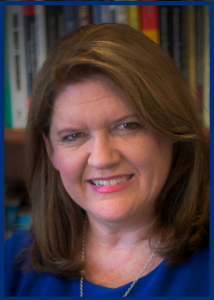
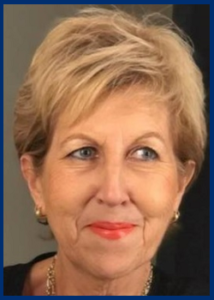 Debi Howarth is an experienced higher education manager, currently managing a team of academic classified staff at USQ. She has over a decade of academic teaching experience and several years as a learning and teaching specialist in academic libraries. She has extensive off shore experience in internationalising education and an avid interest in the ‘open’ agenda, seeing it as a way for the academic library to demonstrate its capacity to lessen the equity gap for both mainstream and marginalised students. Debi continues to see the academic library as the ‘heart of the university’ through her contributions to the teaching and learning working party of QULOC, and as a member of the Regional Universities Network, Academic Student Success Advising Project, she contributes to aligning academic study support with student advising and coursework. Debi co-authored the Griffith University Academic Skills Model with Nicholas Charlton and presented at the 2016 ALIA Conference on communicating academic library impact through visualisation. She presented at the Association for Academic Language and Learning 2019 conference on feedback literacy, and will present at the 2021 conference on piloting an applied numeracy framework within learning advising.
Debi Howarth is an experienced higher education manager, currently managing a team of academic classified staff at USQ. She has over a decade of academic teaching experience and several years as a learning and teaching specialist in academic libraries. She has extensive off shore experience in internationalising education and an avid interest in the ‘open’ agenda, seeing it as a way for the academic library to demonstrate its capacity to lessen the equity gap for both mainstream and marginalised students. Debi continues to see the academic library as the ‘heart of the university’ through her contributions to the teaching and learning working party of QULOC, and as a member of the Regional Universities Network, Academic Student Success Advising Project, she contributes to aligning academic study support with student advising and coursework. Debi co-authored the Griffith University Academic Skills Model with Nicholas Charlton and presented at the 2016 ALIA Conference on communicating academic library impact through visualisation. She presented at the Association for Academic Language and Learning 2019 conference on feedback literacy, and will present at the 2021 conference on piloting an applied numeracy framework within learning advising. Michelle is passionate about library services, all things digital and professional development, which make up her role as Information Services Coordinator at Casey Cardinia Libraries. She is a past-recipient of a Ramsay Reid Scholarship (State Library of Victoria), alumni of the Aurora Institute, is a published author and has presented at many conferences and seminars around Australia, as well as in the US. Michelle is heavily involved in professional development through her involvement in a number of committees, including VALA.
Michelle is passionate about library services, all things digital and professional development, which make up her role as Information Services Coordinator at Casey Cardinia Libraries. She is a past-recipient of a Ramsay Reid Scholarship (State Library of Victoria), alumni of the Aurora Institute, is a published author and has presented at many conferences and seminars around Australia, as well as in the US. Michelle is heavily involved in professional development through her involvement in a number of committees, including VALA.